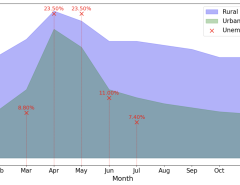Authors: Shahryar Zehtabi, Dong-Jun Han, Rohit Parasnis, Seyyedali Hosseinalipour, Christopher G. Brinton
Published on: February 05, 2024
Impact Score: 8.15
Arxiv code: Arxiv:2402.03448
Summary
- What is new: The introduction of Decentralized Sporadic Federated Learning ($\\texttt{DSpodFL}$), a methodology that handles heterogeneity in decentralized federated learning more effectively.
- Why this is important: Existing decentralized federated learning methods do not adequately address the challenges presented by client heterogeneity, including variations in data, computational capabilities, and participation.
- What the research proposes: $\\texttt{DSpodFL}$ generalizes the concept of sporadic participation and updates in federated learning, accommodating various forms of client heterogeneity and improving upon existing methods like DGD, RG, and DFedAvg.
- Results: $\\texttt{DSpodFL}$ demonstrates faster training speeds and increased robustness to variations in system parameters, surpassing current state-of-the-art methods in efficiency and performance.
Technical Details
Technological frameworks used: Decentralized Federated Learning (DFL)
Models used: Distributed Gradient Descent (DGD), Randomized Gossip (RG), Decentralized Federated Averaging (DFedAvg)
Data used: nan
Potential Impact
This research has implications for companies involved in distributed computing, mobile networks, and Internet-of-Things (IoT) devices, potentially disrupting markets that rely on centralized data processing models.
Want to implement this idea in a business?
We have generated a startup concept here: SporadicNet.



Leave a Reply